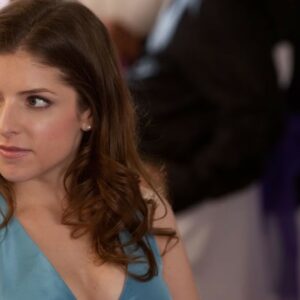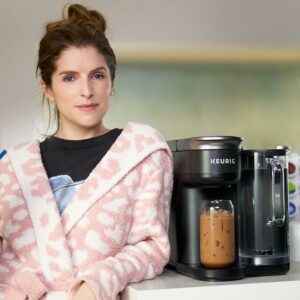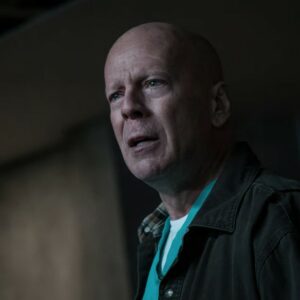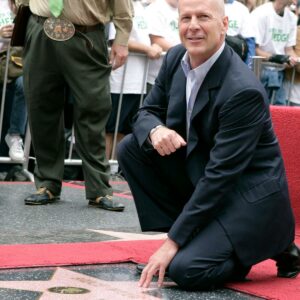In the glittering world of Hollywood, where blockbuster hits and billion-dollar franchises dominate, one name stands out for more than just his box-office appeal: Ryan Reynolds. Known for his sharp wit, humor, and versatility as an actor, Reynolds has emerged as a prominent voice advocating for change in an industry that often resists it. Beyond his on-screen charm, Reynolds has used his growing influence in the world of film production to push for a more inclusive Hollywood, where diversity isn’t just a buzzword but a fundamental part of storytelling.
In this article, we dive into Ryan Reynolds’ advocacy for diversity in film, examining his efforts to ensure representation on-screen and behind the scenes. Through his work, Reynolds aims to break stereotypes, promote inclusion, and ultimately, build a better Hollywood.
Reynolds’ Advocacy for Diversity
Ryan Reynolds is no stranger to the spotlight, but in recent years, he’s been using his platform to shine a light on issues that go beyond his own fame. One of the most important causes he champions is diversity in the film industry. Reynolds has been vocal about the need for a more inclusive Hollywood, where voices from all walks of life are heard and represented. Whether in interviews, social media posts, or public statements, he consistently advocates for change.
In a 2021 interview with Variety, Reynolds emphasized the importance of diverse storytelling: “We need stories that reflect the world we live in. Hollywood has long been dominated by a single narrative, but that’s changing. And it’s changing because more people from diverse backgrounds are demanding to be seen and heard.”
His advocacy is not limited to words. Reynolds has taken concrete steps to ensure that diversity is a priority in his projects. Through his production company, Maximum Effort, he has pushed for inclusivity both in front of and behind the camera. Reynolds understands that promoting diversity means more than just casting actors from different backgrounds—it’s about fostering an environment where diverse voices can thrive.
One of the most notable partnerships reflecting his commitment to diversity is his collaboration with Netflix. Reynolds has worked with the streaming giant to produce content that showcases a wide range of stories and perspectives. His recent projects, like The Adam Project and Red Notice, have featured diverse casts and crew members, underscoring his belief in the importance of inclusivity at every level of production.
Representation On-Screen
For Ryan Reynolds, representation on-screen is not just about checking boxes; it’s about creating authentic and meaningful connections between the audience and the characters they see. He believes that when diverse characters and stories are represented in film, it allows viewers from all backgrounds to see themselves in the media, fostering a sense of belonging and validation.
In an industry where certain demographics have historically been underrepresented or misrepresented, Reynolds recognizes the power of film to shape perceptions and challenge stereotypes. He has been intentional in his own filmography, choosing roles and projects that reflect a more inclusive vision of the world.
Take Deadpool, for example. While the film is primarily known for its irreverent humor and over-the-top action sequences, it also broke new ground in terms of representation. The character of Negasonic Teenage Warhead, played by Brianna Hildebrand, was one of the first openly LGBTQ+ superheroes to appear in a major blockbuster film. Reynolds has spoken about the importance of including characters like Negasonic Teenage Warhead in mainstream cinema, noting that representation in superhero films is especially powerful given their massive global audience.
Reynolds’ commitment to diverse storytelling doesn’t end with Deadpool. In 6 Underground, directed by Michael Bay, Reynolds led a cast that included actors from a wide range of ethnicities and backgrounds. The film’s global setting and diverse ensemble cast were a reflection of Reynolds’ belief that stories should be as varied as the audiences watching them.
In his more recent work, such as Free Guy, Reynolds has continued to champion inclusivity. The film’s cast features a diverse array of actors, including Jodie Comer and Utkarsh Ambudkar, and its message about ordinary people rising to extraordinary circumstances speaks to Reynolds’ belief in the power of underdog stories—stories that resonate with people from all walks of life.
Diversity Behind the Scenes
Ryan Reynolds’ advocacy for diversity isn’t confined to what’s visible on-screen; it extends to the crucial, often unseen, work that happens behind the scenes. As a producer, Reynolds understands that diversity among the cast is just one piece of the puzzle. True inclusivity requires a commitment to ensuring that film crews, production teams, and decision-makers also reflect a broad spectrum of backgrounds and experiences.
Through Maximum Effort, Reynolds has worked to build production teams that are as diverse as the stories they’re telling. He has been intentional about hiring women, people of color, and members of the LGBTQ+ community in key creative roles. This commitment to diversity behind the scenes not only enriches the filmmaking process but also helps to dismantle the systemic barriers that have kept underrepresented voices out of the industry for far too long.
Reynolds has spoken candidly about the need for more diverse perspectives in all aspects of filmmaking. In a 2020 interview with The Hollywood Reporter, he said, “It’s not enough to just have diverse faces on-screen. We need to make sure that the people who are writing the stories, directing the films, and making decisions are just as diverse. That’s how we create real change.”
One example of Reynolds’ commitment to diversity behind the scenes is his work on Deadpool 2. For the sequel, Reynolds and his team brought in David Leitch, a director known for his action-packed films but also for his willingness to collaborate with a diverse group of creatives. The film’s production team included several women and people of color in key roles, from producers to stunt coordinators, reflecting Reynolds’ belief that diversity should permeate every level of production.
Another project that highlights Reynolds’ focus on diversity behind the scenes is the animated film The Croods: A New Age, in which Reynolds voiced the character Guy. The film was produced by DreamWorks Animation, a studio that has made significant strides in promoting diversity among its staff. Reynolds’ involvement in the project aligns with his broader goal of supporting studios and production companies that prioritize inclusivity.
Breaking Stereotypes and Promoting Inclusion
Ryan Reynolds has long been known for his ability to break stereotypes, both in his personal brand and in the roles he chooses to take on. He’s never been one to fit neatly into a box, and he’s made it his mission to challenge traditional norms in Hollywood, particularly when it comes to how characters are portrayed on-screen.
One of Reynolds’ most notable efforts to break stereotypes came with his portrayal of Deadpool. The character is an anti-hero who defies the typical superhero mold. He’s irreverent, flawed, and far from perfect, yet he’s also deeply relatable. Reynolds has spoken about how Deadpool represents a departure from the cookie-cutter superhero archetype, and how the character’s complexities make him more representative of real people. By embracing characters who don’t fit the traditional mold, Reynolds is helping to broaden the scope of what audiences see on-screen.
But Reynolds’ commitment to breaking stereotypes goes beyond his own roles. As a producer, he’s been instrumental in developing projects that challenge conventional narratives and portray diverse characters in empowering ways. For instance, in the film The Hitman’s Bodyguard, Reynolds played opposite Samuel L. Jackson in a buddy-cop action-comedy that subverted typical genre tropes. The film’s casting and humor were reflective of Reynolds’ belief in the importance of diverse stories and characters.
In another example, Reynolds produced Stoned Alone, a reimagining of the classic Home Alone film with a twist. The project, which centers on a young stoner who misses his flight and ends up defending his home from burglars, is a testament to Reynolds’ ability to take familiar stories and give them a fresh, diverse spin. By producing films that break stereotypes and promote inclusion, Reynolds is helping to push Hollywood in a more progressive direction.
The Positive Impact of Diversity
Ryan Reynolds is not just advocating for diversity because it’s the right thing to do—he also believes that it makes good business sense. In interviews and public statements, Reynolds has been clear that diversity leads to better storytelling, more innovative films, and a richer cultural output in cinema.
“Diverse perspectives make for better stories,” Reynolds said in a 2019 interview with Deadline. “When you have people from different backgrounds coming together to create something, you get a film that’s more nuanced, more interesting, and ultimately, more successful.”
Reynolds has pointed to the success of films like Black Panther and Crazy Rich Asians as proof that diversity can drive box-office success. These films, which feature predominantly non-white casts and center on stories that aren’t typically told in Hollywood, have resonated with audiences around the world. Reynolds believes that by embracing diversity, Hollywood can tap into new markets and create films that are more reflective of the global population.
But for Reynolds, the case for diversity isn’t just about dollars and cents—it’s about ethics, too. He’s been vocal about the fact that inclusivity is a moral imperative for the entertainment industry. In a 2020 interview with The New York Times, Reynolds said, “Hollywood has a responsibility to reflect the world we live in. We can’t keep telling the same stories with the same people. It’s time for real change, and it starts with us.”
Conclusion
Ryan Reynolds’ ongoing efforts to promote diversity in film are a testament to his belief in the power of storytelling to shape the world. Through his advocacy, both on-screen and behind the scenes, Reynolds is helping to build a better Hollywood—one that reflects the diverse voices and experiences of people around the world. His commitment to breaking stereotypes, promoting inclusion, and fostering diverse perspectives is paving the way for a more inclusive future in cinema. As Hollywood continues to evolve, Ryan Reynolds’ contributions will undoubtedly play a crucial role in shaping the industry’s path forward.





